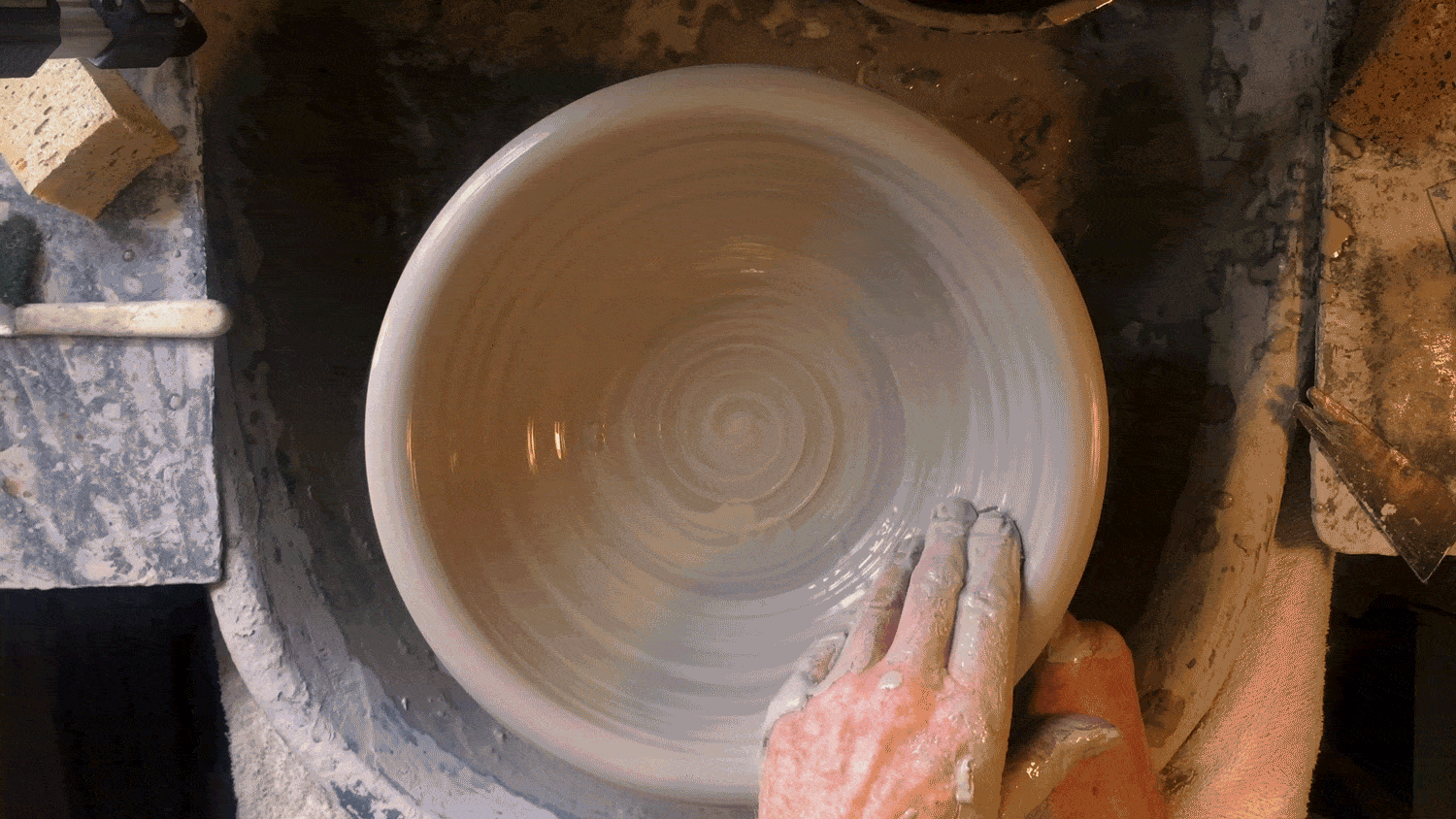If You Want to Write Better, You Have to Write More
Quantity makes quality.

Writing is a lot more than words on a page but, at the same time, it’s just the words on the page. In order to get to the ineffable, you have to do the effing work. For me, that means writing every day. Not because every piece of writing is good, but because the process makes me a better writer.
The function of the overwhelming majority of your artwork is simply to teach you how to make the small fraction of your artwork that soars. One of the basic and difficult lessons every artist must learn is that even the failed pieces are essential. (Art & Fear)
David Bayles and Ted Orland explain this with a parable about pottery.
The ceramics teacher announced on opening day that he was dividing the class into two groups. All those on the left side of the studio, he said, would be graded solely on the quantity of work they produced, all those on the right solely on its quality.
His procedure was simple: on the final day of class he would bring in his bathroom scales and weigh the work of the “quantity” group: fifty pound of pots rated an “A”, forty pounds a “B”, and so on. Those being graded on “quality”, however, needed to produce only one pot -albeit a perfect one — to get an “A”.
Well, came grading time and a curious fact emerged: the works of highest quality were all produced by the group being graded for quantity. It seems that while the “quantity” group was busily churning out piles of work — and learning from their mistakes — the “quality” group had sat theorizing about perfection, and in the end had little more to show for their efforts than grandiose theories and a pile of dead clay.
In this way writing is like anything else really, practice makes perfect.
If you watch an athlete or musician perform, it’s not the first time they’re doing it. They’ve done each movement or note a thousand times before. They’ve done different movements that help them adapt if they mess up. Even their improvisation is defined by the practice.
In the same way, as a writer, while it’s important to spend hours or days or even years on certain content, you need to be exercising and practicing all the time to even have that ability.
But most writers aren’t like elite athletes or musicians, no one shows up to watch us play. Writers like me are more like street buskers. We’re standing on the side of a busy road, trying to get people to pay attention and maybe stop for a while. You may be competing with your head or God or whatever, but to a reader, you’re just competing with the rest of their day.
As a word busker, if you just stand there, no one will stop. If you say something amazing once at 11:35 PM no one will hear. You have to stand there blathering all day, attracting enough of a crowd such that when something interesting does come out, someone will hear it, and tell a friend.
That’s it. That’s all you’re doing. You’re a street performer. Luckily technology like printing presses and Internet servers will stand on the street for you, but you still have to supply the words. And whether you’re writing an epic novel or a blog post, you still have to do it every day.
In my experience, that means going to a room my children don’t know about and disappearing for hours at a time. Sometimes I don’t publish anything, but I’m not doing anything else.
You have to keep your bottom on the chair and stick it out. Otherwise, if you start getting in the habit of walking away when you’re stuck you’ll never get it done.
Roald Dahl, ‘The Author’s Eye Notebook’
Very often I’ll shed 3,000 words to write a 1,000-word piece. Sometimes I’ll get 1,000 words in and realize that I’m wrong and throw it all away. But then sometimes I can sit and hammer out something in 30 minutes that really works. What I’ve discovered is that what works is out of my control. I can only do the work.
Ultimately someone has to stop their busy day (or determined procrastination) and say, ‘hey, that looks interesting’. Then they have to read past the headline and go ‘hey, that is interesting’. And then, if you’re lucky they’ll give you five minutes of your time, and come back again.
It’s a conversation, but a weird sort. As a writer, you can get everything from deafening silence to deafening applause. The only constant is deafness. And yet it is a conversation. To get to know your readers you have to write for them, and ideally publish. And you’re a reader as well; each written piece is as strange to you as a full-grown child. To know yourself you have to read yourself, in horror or delight.
Hence, if you want to write better, you have to write more. Practice makes perfect, quantity is quality and, ultimately, to be a writer is to be read. I don’t mean that you need to publish every day, or only write short pieces, I just mean that to get better you have to get going. And once you get going, it’s hard to stop.